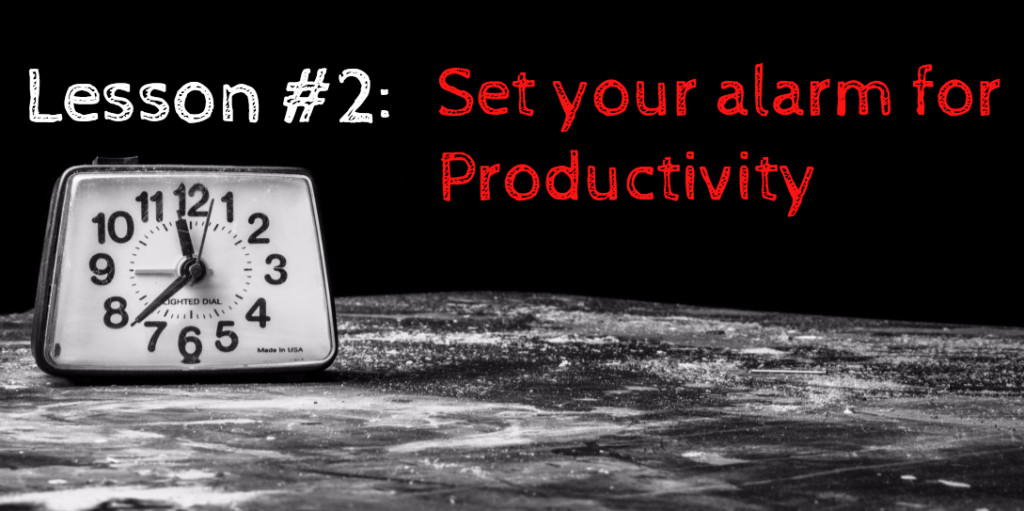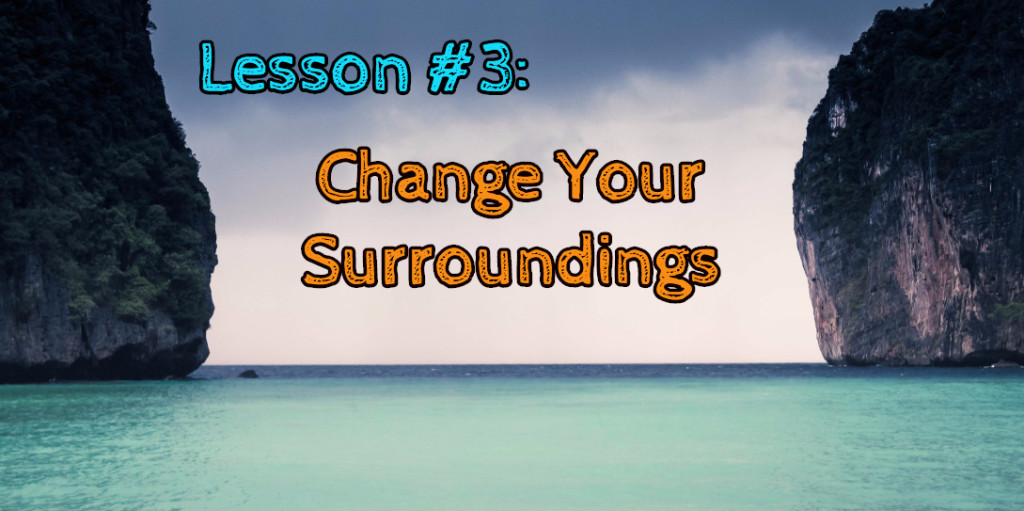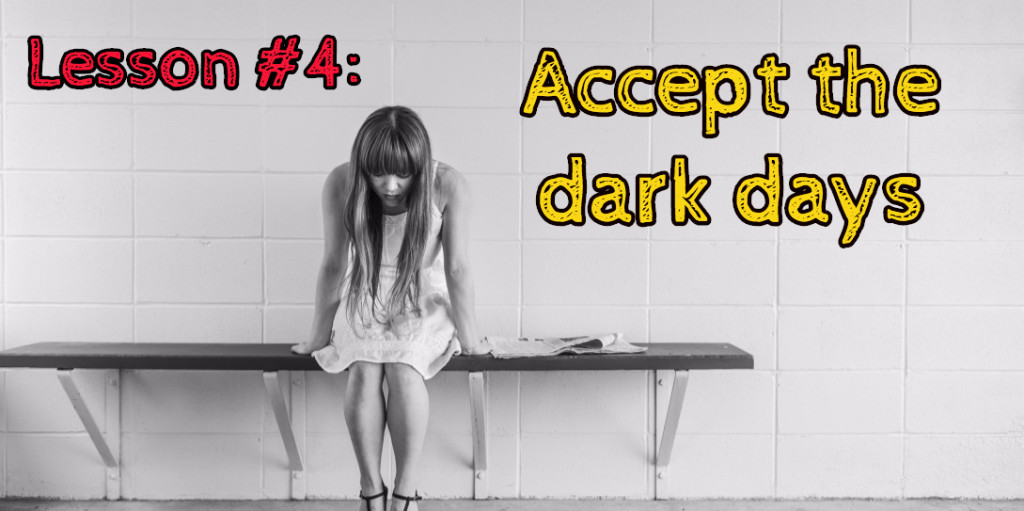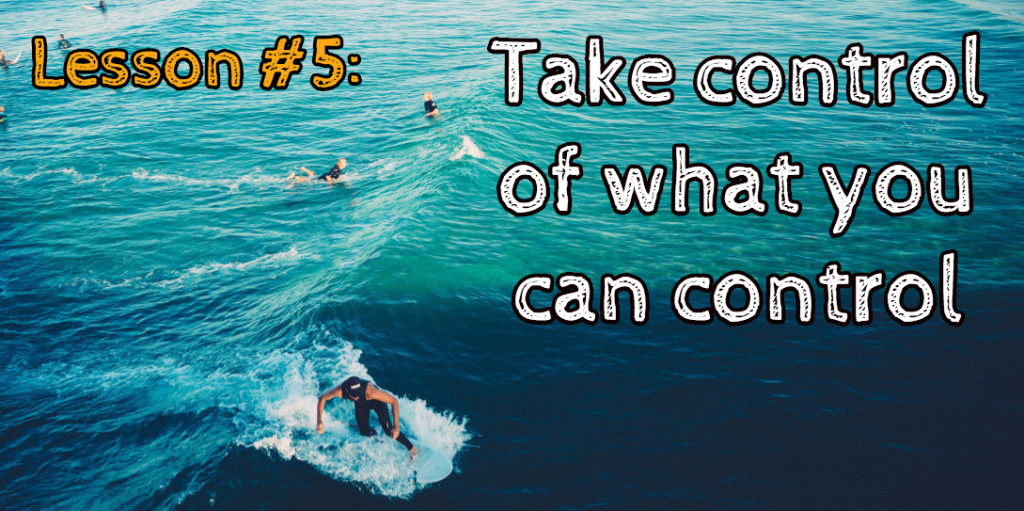As the clock hits midnight tonight I’ve officially been running my own business for a year.
I quit my job at a shoe shop, headed to a music festival and then came home to start life as a Freelance Writer.
And, it’s been one hell of a ride.
I’ve learned a lot about business, marketing, social media, life, love and everything else that falls in between. I’ve written about topics I never dreamed I’d learn about, and some I wish that I never had.
I’ve worked from coffee shops, boats, kitchen tables, airports, trains and my own makeshift desk in my study. And I’ve got no idea where it’s going to take me next.
Today though, I don’t want to share with you about being a Freelancer or the ins-and-outs of writing blog posts for a living.
I want to talk to you about some of the lessons I’ve learned in productivity.
Because, if were to confess one thing to you, it would be this:
I’m an organisational nightmare.
My attention span is short. I’m surrounded by distractions. I have a WhatsApp thread that beeps every 30 seconds and I once spent 45 minutes watching a fly go in squares around my living room.
But I still manage to have never missed a deadline, build a solid client base and write over 325,000 words in the last 12 months.
If you’re ready, come with me as I show you some of the most important productivity lessons I’ve learned that have seen me through the minefield of the last year, that could also help you be more productive today.
#1: You Need To Track Your Mood
Your mood and how productive you are go hand in hand.
For example, I’m one of the legions of people who is most productive in the first two hours after they wake up. So, I focus all of my important work there, and then slowly taper it off to easier tasks.
But that’s not how it works for everyone, either.
I’ve known people write all their blog posts at 3am. Others can’t find their stride until they’ve had a big breakfast, two cups of coffee and a walk on their lunch hour.
But, for some reason, you always feel that you need to be productive at 9am, and finish at 5pm, because that’s what conventional standards are set at.

What’s more important is that you find the times that work for you.
Try making a log of your day, like the one I talk about in this article, and how you feel each and every hour:
- When do you feel most productive?
- When do you feel like you struggle?
- When do you feel happy?
- When do you feel tired?
Do this for a week (or two, if you’re just back from Vacation) and make a note of the dips and troughs throughout the day.
You’ll find your mood is pretty consistent over time – especially when it relates to work – so you’ll be able to see when you should work, when you should rest, and what kind of work you need to do at each point in the day.
#2: Set Your Alarm For Productivity
Okay, I’m going to throw this out there right now:
I have no science to back this point up.
But when I was a Personal Trainer, way back in the day, I had a client who did an experiment on his sleeping pattern. He tested himself on:
- Quality of sleep on even hours
- Quality of sleep on odd hours
- Quality of sleep on half hours
And he discovered that if he woke up after one, three, five, seven or nine hours sleep, he was really productive, refreshed and energised.
Anything else and he was a write off.

So I performed this test on myself. And I found out something interesting:
- If I wake up at half past the hour, I have poor energy
- If need at least six hours sleep per night
- If I wake up on the hour I have the most energy
Which means that waking up at 7:00am is perfect for me. Because I can have my most productive two hours before 9:00am.
And this is a test I think you should do for yourself too.
Sleep is underrated in the business world, because a lot of people subscribe to the, “I can sleep when I’m dead, I’ve got a dream to build!” philosophy.
That might be great for some people. But, not for everyone. If you’re finding yourself in a productive slump, take a look at your sleeping patterns and monitor it closely.
- When are you sleeping?
- For how long?
- What’s different in the mornings you wake up feeling great?
Then monitor the how longs, the hours and the times of waking up. Then, when you find your sweet spot – where you’ve had enough sleep, and feel great – you’re never worried about how much work you can get done in the morning.
#3: Feeling Stuck? Change Your Surroundings
I’m all for having a specific place that you work.
In fact, it’s important for your overall productivity to have a designated workspace – be that a desk, office or coffee shop – that you do most of your work at.
Having this space let’s you drop in and out of your work mind as soon as you get there, or leave.
But…it can be boring.
After a while you get stuck in a rut, and just want to get up and leave your desk for good. Because if you’re in the business of running your own business, you tend to have a slightly more active mind than other people.
It’s times like these that you should go and work somewhere else.

Take a day to work from home, or a coffee shop, or a library or somewhere that inspires you creatively.
For me, there’s a little coffee shop in my home town, and I’ll go and sit down there and tap away at the keyboard, with Oasis playing in the background and the smell of cappuccino next to me.
This change is important.
Because while you stay sat at the same desk, you become stifled. You think to yourself, “Man, I’m never going to get anything done today!” and focus on all the negatives of the day.
But, by going somewhere else, not only is it refreshing to sit in a new environment, everything feels a little different. You’re in a different mind set to approach and tackle the work in front of you.
#4: Accept The Dark Days
Some days you’re going to wake up and everything is going to feel terrible.
You’ll not be able to think straight. You’ll spill your coffee. Burn your lunch. Use conditioner on your body in the shower.
And you’ll feel like the whole world is against you and your project.
I like to call them Dark Days.
Accept them. They happen. You can’t be productive today, so throw in the towel and go and do something you enjoy.

#5: Take Control Of What You Can Control
There are certain things in your day-to-day you can’t control:
- People asking you to do things you don’t want to do
- Interruptions
- Complaints
- Other peoples attitudes
So, stop trying to. It’s counter-productive and wastes a lot of time and energy. Instead, you have to learn to do two simple things:
- Stop worrying
- Say no
Once you learn to do that, the time and energy you have to spend elsewhere goes up.

Let me give you a personal example:
I work from home, most of the time. But my family don’t quite get what it is that I do. And they can’t distinguish when I’m working, or when I’m just at home dossing about and playing my Xbox.
That means I get a lot of phone calls saying:
- “Could you help me do this?”
- “Have you got a spare 10 minutes to…”
- “Reckon you could give me a ride to this stupidly far away place?”
Or, you know, other things along those lines.
And at first, I was always happy to oblige and help out. But my work suffered. I was rushing articles and getting things done as close to the cut off as possible.
And the little things – like social media – were falling by the wayside too.
So I had to learn to say no, and stop worrying about what they thought.
You’ll have similar distractions in your life too. People piling work on you. Clients moaning about X, Y or Z that could really wait.
You know exactly what I mean, don’t you?
But don’t let them get to you. These are the biggest drain on your productivity that I’ve ever come across.
Learn to say no.
Learn to stop worrying.
Learn to work through it.
The results in the long run will be much better.


Thanks James, I needed this today. So many distractions, interruptions, and even mental blocks lately. Time to take a walk!
Hey Jeremy, glad to have helped! Walking is great, especially if you treat it as a form of meditation.
I’ve had a long month with family stuff, and walking the dog for even just 20 minutes a day has been a big help for keeping me focused and more productive.
Anything I can help with?
I can relate. I, too, need my sleep – for me it’s at least 7 hours, I sometimes go to the library to work, even tho I have a nice home office, and I learned a long time ago to just say no to the folks who think working from home means I can drop everything to run an errand. I am most productive in the morning, and surprisingly, late evening. It takes focus and determination to be a home-based businessperson. Congrats on your one year!
Great effort, Laurie! It can take people years to learn to say no. I’ve struggled with it, but my goals are more important than grabbing someone a pint of milk, so it became easier when I looked at it like that.
That’s a good way to think about it. Clever!
Thanks for an insightful article , James. Tracking the my mood and changing my productive activity to mach up with it, my sleep level and time. Changing the environment up is a great reminder for me, too. Congratulations on getting through he year so successfully!
Hey Beth, thanks for the kind words! The more you track, the more you know, and you can never know too much 🙂
There is some science to the sleeping time issue. We have a sleep cycle which generaly takes one and a half hours. If you wake up exactly and the end of that cycle you will wake refreshed. Wake in the middle of it and you will feel like crap (even if you sleep a lot). So, you should sleep in cycles that are multiple of 1.5hs (1.5, 3, 4.5, 6, 7.5, 9). Take into consideration the ammount of time you take to actually fall asleep and you can even plan your naps succesfully. When I want to take a nap I set my alarm for a 2 hours interval and it works great for me. Source: https://www.psychologytoday.com/blog/between-you-and-me/201307/your-sleep-cycle-revealed
Well I never, Davidson! Thanks for giving me the science on this. Every day is a school day, right? Might have to give this a spin with some napping too!
Some great tips today. Oddly I wrote about something similar in my blog post today. One of the things I recently started doing was a daily blog post and today I was looking at interruptions/distractions and some of the ways I use to beat them.
I need to look into the idea of different locations. I want to start devoting some time every week to planning and I like the idea of doing that somewhere different.
Anyway I share some of my favourite tools in my post and some of your readers might find it interesting.
http://www.justinwheeler.net/the-danger-of-interruptions/
Hey Justin, thanks for the kind words and sharing your insights! Different locations has definitely been a big factor me, so I’d recommend making it a part of your system.
Great! Thanks.
Thanks for reading, Michael! 🙂
I really enjoyed reading this piece James, thanks! I’m also a digital nomad working from anywhere (coffee shop, airport, countryside, rooftop bar or wherever I am and there’s good 4G or WiFi) and face similar issues. I really feel you when it comes to #5. During my two month stay at home (I live abroad) with my family, it’s so difficult to explain some of them that I’m actually working (“no, I’m not just on FB or playing games or reading articles or watching movies. I’m working”). I think it’s crucial to sit them down and explain that it’s no different than you being at the office. It’s your work time, no phone calls, no asking for favors. Mine eventually understood and respect it now 🙂
Hey Marta, thanks so much for the kind words! Yeah, getting your family on board with what you’re doing is hard, but it’s essential. That way you don’t quake with fear every time you hear someone walking up the stairs.
Hehe, true! It’s even more challenging with the kids. My nephew told me once: “Shut off this dull computer!” 😉